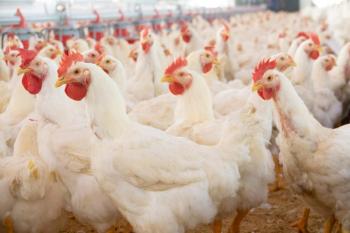
Johne's disease vaccine developed at Cornell
Ithaca, N.Y. -- Researchers at Cornell University's College of Veterinary Medicine have developed a vaccine against Johne's disease, a contagious, chronic and often fatal infection.
Ithaca, N.Y.
-- Researchers at Cornell University's College of Veterinary Medicine have developed a vaccine against Johne's disease, a contagious, chronic and often fatal infection.
The research that led to the discovery was funded by grants from the Biotechnology Research and Development Corporation and through a cooperative agreement with the New York Department of Agriculture and Markets and the USDA-APHIS. The vaccination is made up or four recombinant antigens, a fusion polypeptide of Mycobacterium avium subspecies paratuberculosis and the adjuvant dimethydioctadecyl ammonium bromide (DDA), according to the published research, which can be found at
The disease, which is blamed for annual losses of up to $250 million in the dairy industry, affects the small intestine of ruminants like sheep, cattle, deer and bison. Johne's is caused by Mycobacterium avium subspecies paratuberculosis, which is related to leprosy and tuberculosis. The baceterium is found worldwide and causes a thickening of the intestinal wall that blocks the normal absorption of food, according to the college.
Newsletter
From exam room tips to practice management insights, get trusted veterinary news delivered straight to your inbox—subscribe to dvm360.






